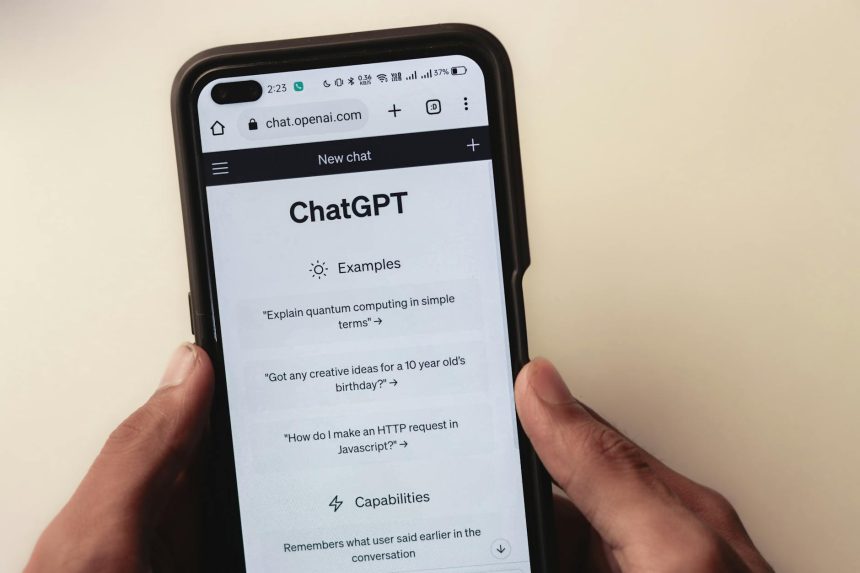chatgpt-age-gating
ChatGPT Age-Gating: Why OpenAI’s Policy Blew Up?
The rapid evolution of artificial intelligence has brought forth incredible innovation, yet it also presents complex ethical and safety challenges. One recent instance that highlighted this delicate balance involved OpenAI’s attempts to implement age-gated features on its popular chatbot. The rollout of these new policies, intended to enhance user safety, quickly became a focal point of controversy. Specifically, the introduction of ChatGPT age-gating measures “blew up on the erotica point,” as acknowledged by OpenAI CEO Sam Altman, sparking widespread discussion about content moderation in AI.
The Unforeseen Challenges of ChatGPT Age-Gating
OpenAI, a leader in AI research and development, faces the monumental task of ensuring its powerful models are used responsibly. Implementing age-gating for services like ChatGPT is a proactive step towards protecting younger users from potentially inappropriate content. However, the path to effective content moderation in generative AI is fraught with unexpected difficulties.
OpenAI’s Vision for Responsible AI
From its inception, OpenAI has emphasized a commitment to developing AI that benefits all of humanity. This vision includes robust safety protocols designed to prevent misuse and protect vulnerable populations. The decision to introduce ChatGPT age-gating stemmed from this core principle, aiming to create a safer digital environment for its diverse user base. It’s a complex undertaking that requires continuous refinement and adaptation.
Navigating the “Erotica Point” Fallout
When OpenAI first rolled out its age-gated features, the reaction was swift and, in some areas, intensely negative. The primary contention revolved around how the system handled content related to erotica. What was intended as a protective measure inadvertently led to accusations of overreach and censorship, especially from creative writers and adult users who felt their legitimate use cases were being unfairly restricted. This incident underscored the profound difficulty in programming AI to discern between harmful content and artistic expression.
Key Hurdles in AI Content Moderation
Effectively moderating content on an AI platform like ChatGPT requires addressing several critical challenges. These difficulties are inherent in the nature of large language models and their interaction with human creativity.
- Nuance Detection: AI struggles to understand context and intent, often misinterpreting innocent or artistic content as problematic.
- False Positives: Overly aggressive filters can block legitimate content, leading to user frustration and limiting creative expression.
- Cultural Sensitivity: What is deemed appropriate varies significantly across cultures, making universal moderation policies incredibly complex.
- Evolving Content: The landscape of user-generated content is constantly changing, requiring AI models to adapt rapidly to new trends and forms of expression.
Towards a Balanced Approach for AI Safety Features
The experience with ChatGPT age-gating has provided valuable lessons for OpenAI and the broader AI community. Moving forward, a more nuanced approach is essential, balancing user safety with creative freedom and accessibility.
- Enhanced User Feedback Mechanisms: Creating clearer channels for users to report false positives and provide context on content.
- Granular Control Options: Offering users more control over their content filters, allowing for personalized safety settings.
- Transparent Policy Communication: Clearly articulating the rationale behind moderation policies and how they are implemented.
- Continuous Model Training: Regularly updating AI models with diverse datasets to improve their ability to distinguish between harmful and legitimate content.
- Collaboration with Experts: Engaging with ethicists, legal experts, and user groups to develop more comprehensive and equitable guidelines.
For more insights into OpenAI’s ongoing efforts to ensure AI safety, you can visit their official AI safety initiatives page. Understanding the technical and ethical considerations is paramount for the future of AI.
The Broader Impact on AI Development and Digital Ethics
The challenges faced by OpenAI with its age-gating policies are not isolated incidents. They reflect a broader, industry-wide struggle to define and enforce digital ethics in the age of generative AI. Companies are under increasing pressure to create safe platforms while simultaneously pushing the boundaries of what AI can achieve. This constant tension drives innovation in areas like content filtering, user verification, and ethical AI design. The conversation around AI safety features is only just beginning, with every major tech company grappling with similar dilemmas.
The future of AI will heavily depend on our ability to navigate these complex ethical landscapes. As AI models become more sophisticated, the need for robust, yet flexible, content moderation strategies will only grow. It’s a collective responsibility to ensure these powerful tools are developed and deployed in a manner that truly serves the public good. Exploring further into the ethical considerations of AI, resources like the World Economic Forum’s AI ethics discussions offer valuable perspectives.
Conclusion: The Evolving Landscape of AI Safety
The experience with ChatGPT age-gating serves as a powerful reminder of the intricate challenges involved in deploying advanced AI technologies responsibly. OpenAI’s candid acknowledgment of the “erotica point” fallout highlights the continuous learning curve in AI development and content moderation. As AI continues to integrate into our daily lives, striking the right balance between innovation, user safety, and freedom of expression will remain a critical task for developers and policymakers alike. The journey towards truly responsible AI is an ongoing dialogue, shaped by every policy decision and user interaction.
Join the conversation and share your thoughts on the evolving landscape of AI safety and ChatGPT age-gating.
Explore the controversy behind ChatGPT age-gating, including OpenAI’s challenges with content moderation and the “erotica point.” Understand the future of AI safety and the complexities of balancing innovation with responsible AI development.
AI chatbot age-gating controversy, OpenAI content moderation, digital ethics AI, ChatGPT safety features, Sam Altman AI policy
Featured image provided by Pexels — photo by Sanket Mishra




